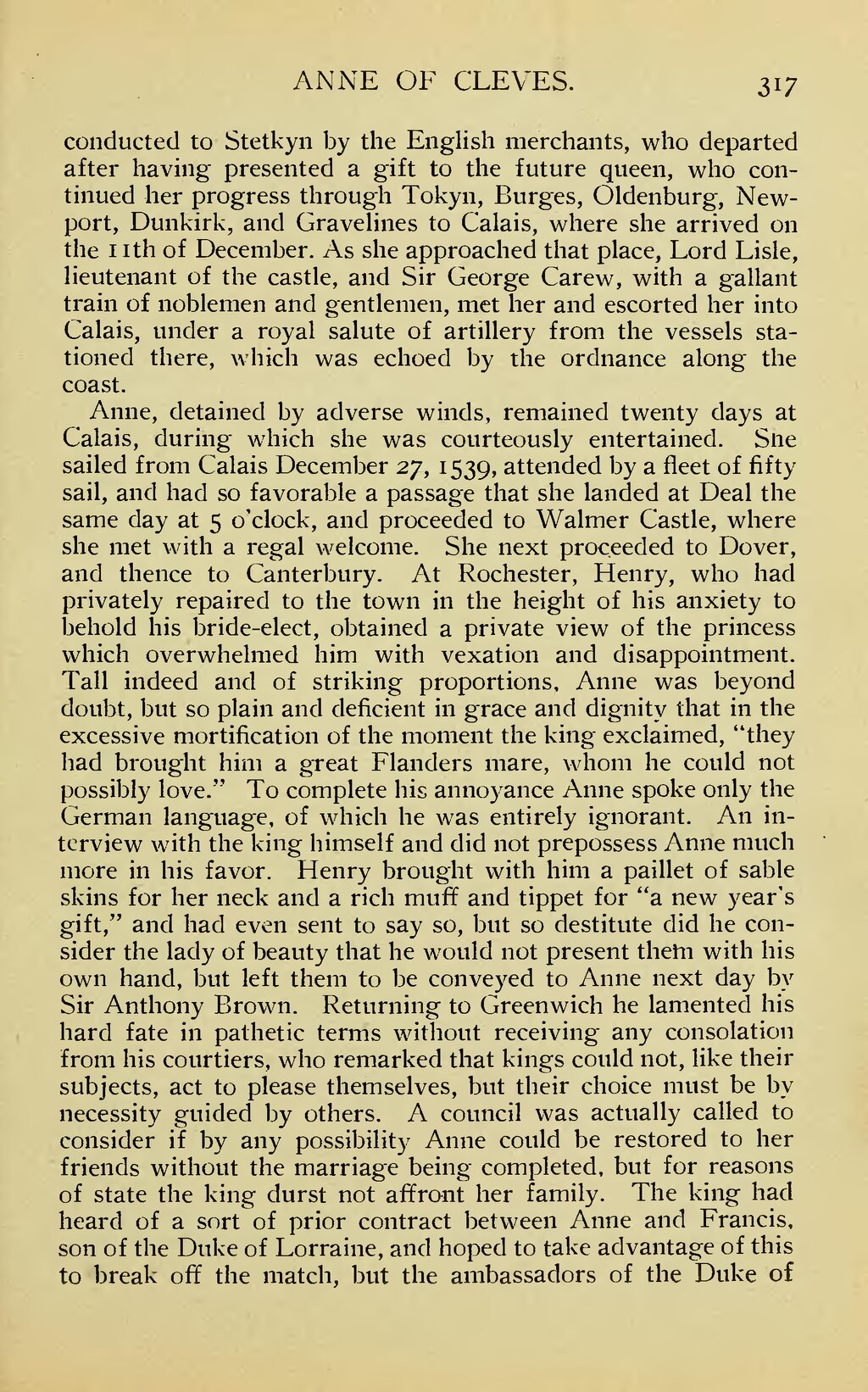ANNE OF CLEVES. 317 conducted to Stetkyn by the English merchants, who departed after having presented a gift to the future queen, who con- tinued her progress through Tokyn, Burges, Oldenburg, New- port, Dunkirk, and Gravelines to Calais, where she arrived on the nth of December. As she approached that place, Lord Lisle, lieutenant of the castle, and Sir George Carew, with a gallant train of noblemen and gentlemen, met her and escorted her into Calais, under a royal salute of artillery from the vessels sta- tioned there, which was echoed by the ordnance along the coast. Anne, detained by adverse winds, remained twenty days at Calais, during which she was courteously entertained. She sailed from Calais December 27, 1539, attended by a fleet of fifty sail, and had so favorable a passage that she landed at Deal the same day at 5 o'clock, and proceeded to Walmer Castle, where she met with a regal welcome. She next proceeded to Dover, and thence to Canterbury. At Rochester, Henry, who had privately repaired to the town in the height of his anxiety to behold his bride-elect, obtained a private view of the princess which overwhelmed him with vexation and disappointment. Tall indeed and of striking proportions, Anne was beyond doubt, but so plain and deficient in grace and dignity that in the excessive mortification of the moment the king exclaimed, "they had brought him a great Flanders mare, whom he could not possibly love." To complete his annoyance Anne spoke only the German language, of which he was entirely ignorant. An in- terview with the king himself and did not prepossess Anne much more in his favor. Henry brought with him a paillet of sable skins for her neck and a rich muff and tippet for "a new year's gift," and had even sent to say so, but so destitute did he con- sider the lady of beauty that he would not present them with his own hand, but left them to be conveyed to Anne next day by Sir Anthony Brown. Returning to Greenwich he lamented his hard fate in pathetic terms without receiving any consolation from his courtiers, who remarked that kings could not, like their subjects, act to please themselves, but their choice must be by necessity guided by others. A council was actually called to consider if by any possibility Anne could be restored to her friends without the marriage being completed, but for reasons of state the king durst not affront her family. The king had heard of a sort of prior contract between Anne and Francis, son of the Duke of Lorraine, and hoped to take advantage of this to break off the match, but the ambassadors of the Duke of
Page:The Queens of England.djvu/357
This page needs to be proofread.
